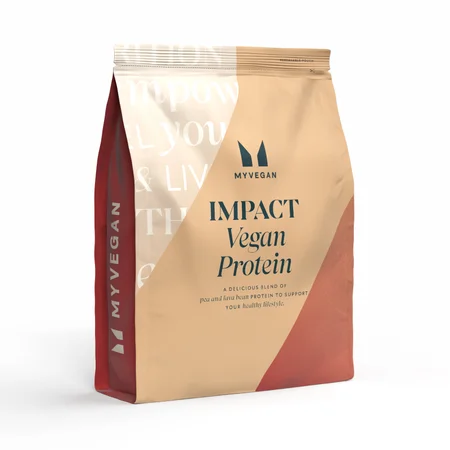How Much Protein Do I Need?

Whether you’re trying to bulk up, lose weight or just maintain muscle mass, getting your protein intake right is critical. How much is right for you will depend on a number factors including your individual health and training goals. How much protein you need has a been topic of much discussion with issues often raised over the safety of high protein diets. This article will look to clear things up where protein is concerned and outline how much you need to help you achieve your goals.
- What is protein?
- How much protein do you need each day?
- Protein for muscle and strength.
- Protein for weight loss.
- Do vegans need more protein?
- Do women need less protein than men?
- What are some good sources of protein?
- Protein deficiency.
- Side effects of too much protein.

What is protein?
Protein is essentially a macronutrient made up of amino acids. Specifically, 9 essential amino acids and 11 non-essential amino acids. Essential aminos are the most important for their effect on your body’s muscle protein synthesis – the process in which your body builds muscle and you can only get essential amino acids in the diet as the body cannot produce them. Not all protein sources are the same with some containing more essential amino acids than others.
How much protein do you need each day?
Due to the wide range of actions that proteins are responsible for, the RDA for protein is 0.8g/kg/d, which is the minimum you should look to get in. The optimal intake depends on your body composition, training goals and other calorie and macronutrient requirements. In athletic individuals training for a certain goal, optimal intakes can range from 1.2 – 2.5g/kg/d.1 For those dieting and aiming to lose weight, protein intakes may need to be on the upper end of that range as evidence shows keeping protein intake during an energy deficit will help preserve your lean muscle mass.2
Protein for muscle and strength
Due to proteins effect on satiety (feeling of fullness) after a meal, it may be difficult to hit high energy demands with protein intakes above 1.6g/kg/d. Additionally,

Protein for weight loss
In order to lose weight, you need to be in a calorie deficit.
In a study comparing a protein intake of 2.4g/kg/d to 1.2g/kg/d whilst completing resistance exercise whilst in a substantial energy deficit, those with an intake of 2.4g/kg/d preserved more muscle mass.2 Whilst you may not need to go as high as 2.4g/kg/d,
Another key reason for getting your protein intake right whilst for a weight loss plan is protein’s effect on satiety.5
Do vegans need more protein?
Animal protein sources have more essential amino acids than plant sources.6 Essential amino acids are the key element when assessing a protein’s source ability to increase muscle protein synthesis rates. Specifically, there is a branched-chain amino acid called leucine which acts as a ‘trigger’ to increase muscle protein synthesis.7
In order to have the same impact on increasing muscle protein synthesis, vegans may need more of a protein source to get enough essential amino acids. However, there is evidence to show that supplementing leucine when consuming a vegan protein source with less essential amino acids will to ‘rescue’ that protein source and allow it to have the same impact on increasing muscle protein synthesis.8
Do women need less protein than men?
Regardless of whether you are male or female, protein requirements are the same, as protein is utilised in the same way. However, using a g/kg measurement will mean you need less absolute protein on a daily basis – so females may not need to eat as much protein or fish to hit their protein requirements as males. An intake of 0.3g/kg per meal will be enough to maximise muscle protein synthesis for both males and females.1

What are good sources of protein?
Vegan sources
| Source | Protein per 100g |
| Pumpkin seeds | 30.2 |
| Lentils | 24.6 |
| Black beans | 21.6 |
| Almonds (raw) | 21.2 |
| Tempeh | 20.3 |
| Tofu | 17.3 |
| Oats (rolled) | 16.9 |
| Quinoa (uncooked) | 14.1 |
Meats
| Source | Protein per 100g |
| Sirloin steak | 25g |
| Ribeye steak | 25g |
| Rump steak | 31g |
| Pork chop | 32g |
| Pork loin joint | 30g |
Poultry
| Source | Protein per 100g |
| Chicken breast | 32g |
| Chicken thigh | 28g |
| Turkey breast | 35g |
| Duck breast ( | 25g |
Fish
| Source | Protein per 100g |
| Cod | 24g |
| Haddock | 24g |
| Salmon | 23g |
| Sea bass | 24g |
| Plaice | 21g |
| Tuna (canned, drained) | 24g |
| Prawns (king) | 18g |
Dairy
| Source | Protein per 100g |
| Whole milk | 3.3g |
| Semi skimmed milk | 3.4 |
| Skimmed milk | 3.4g |
| Greek yoghurt (whole) | 9.8g |
| Greek yoghurt (0% fat) | 11g |
| Cheddar cheese | 25g |
| Feta cheese | 15g |
Protein deficiency
A lack protein in your diet will lead to a range of health concerns. These can include skin lesions, thin brittle hair and hormone imbalances. On a long-term basis, low protein intake may lead to a condition known as sarcopenia9. This is the loss of muscle mass during the ageing process. A lack of muscle mass in an older person can be quite debilitating as it can prevent day to day activity that can be taken for granted at a younger age.
Side effects of too much protein
Over the years, the safety of high protein intakes has been heavily discussed. Whilst a lot of negative reports of high protein intakes have been proven to be unfounded in healthy individuals1, those with existing health conditions (especially kidney problems) should exercise caution and discuss with a doctor or a registered dietician before starting a high protein diet.
For healthy individuals there is evidence that long term intakes as high as 3.4.4g/kg/d have no detrimental health impacts.10 However, if you take your protein intake up too much and in any way that will prevent you from getting in enough other macronutrients whilst sticking to your calorie allowance may cause problems. For example, if you are having so much protein that you do not have enough calories left for an appropriate amount of carbohydrates, side effects may include constipation, dehydration and bad breath.
Eating a balanced diet with a protein intake optimal for your health and fitness goals (1.2-2-5g/kg/d) will help to reduce side effects and prevent health concerns.
Take Home Message
READ THESE NEXT:

Liam is a certified sport nutritionist with the International Society of Sport Nutrition and is enrolled on the British Dietetics Association’s Sport and Exercise Nutrition register. He has a Bachelor’s of Science in Sport and Exercise Science and is graduate of the ISSN Diploma in Applied Sport and Exercise Nutrition.
Liam is an experienced personal trainer, helping clients reach their health and fitness goals with practical, evidence informed exercise and nutrition advice. In his spare time Liam has competed in numerous powerlifting competitions and enjoys hill walking, football and expanding his recipe repertoire in the kitchen.Find out more about Liam's experience here.






